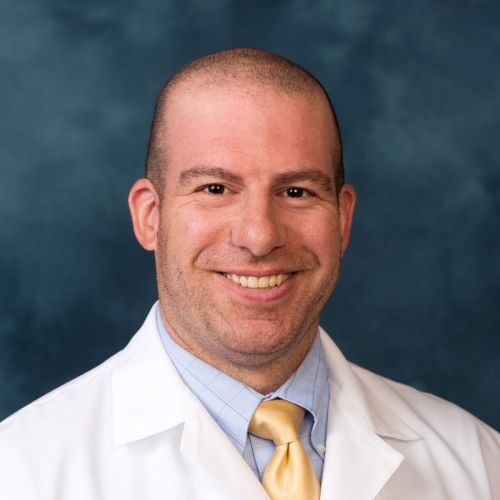The AerosolVE BioHelmet creates a personal negative pressure field around the wearer, preventing the spread of viral droplets and aerosols in any environment.
Author |

ANN ARBOR, MI – InspireRx, LLC., a spin-off company of the University of Michigan (U-M) Max Harry Weil Institute for Critical Care Research and Innovation, received over $2 million in Small Business Innovation Research (SBIR) grants to support further development of the AerosolVE BioHelmet, a compact negative pressure system for patients with highly contagious airborne respiratory infections such as COVID-19. The funding was awarded in the form of a two-year, $1,828,885 grant from the National Heart, Lung, and Blood Institute (NHLBI) of the National Institutes of Health (NIH) and a six-month, $295,924 grant from the Centers for Disease Control and Prevention (CDC).
Dr. Sridhar Kota, CEO of InspireRx, Herrick Emeritus Professor of Engineering and a member of the Weil Institute, will serve as Principal Investigator on both grants. He and a team of clinicians, researchers and fellow engineers from the Institute began initial work on the BioHelmet in March of 2020 in response to the COVID-19 global health crisis. The helmet was developed alongside a complementary technology, the AerosolVE Tent, which received Emergency Use Authorization from the U.S. Food and Drug Administration (FDA) in 2021.
“It started as a simple and straightforward idea conceived while brainstorming with my daughter, Shalini Kota,” said Dr. Kota. “What followed was a quick prototype to meet an urgent need, which would go on to save lives within a few weeks thanks to Drs. Ben Bassin, Nathan Haas and Kevin Ward. That, to me, was the most gratifying outcome of all.”
Now, the additional support from the NIH and CDC will allow the team to manufacture production quality units, enabling further testing and refinement of the BioHelmet as the team strives toward FDA approval.
Personal Protective Equipment (PPE) for the Patient
The COVID-19 pandemic underscored an urgent need for solutions capable of curbing the spread of highly transmissible respiratory diseases while enabling the safe transport and treatment of patients with these conditions. A current strategy is to place patients who have these conditions into negative pressure rooms—specially equipped spaces that allow fresh air to flow in while preventing contaminated air from flowing out. However, these systems are costly, fixed, inflexible spaces and are virtually non-existent in less-resourced health systems. Moreover, while negative pressure rooms effectively prevent viral particles from escaping into the environment outside of them, they are not designed to protect the patients and healthcare teams who are inside of them.
The AerosolVE BioHelmet addresses this need by instantly isolating patients with any highly transmissible respiratory infectious disease wherever they are—whether in an ambulance, waiting room, intensive care unit, or even a hallway. Worn around the patient’s head, the device pulls ambient air into the helmet and subsequently directs this air with the patient’s exhaled breath through an attached HEPA filter to remove pathogens. The rate of flow produced provides 800 air exchanges per hour, which is 70 times more air exchanges than a traditional negative pressure room at a fraction of the cost. The helmet is also designed to accommodate non-invasive oxygen treatments such as high-flow nasal cannula, aerosol masks and continuous positive airway pressure (CPAP) devices, helping to spare the need for mechanical ventilation. Even when these therapies are used, there will be no need for a negative pressure room.
"[The BioHelmet] provides negative pressure across almost any environment, whether it's in a hospital room, a waiting room, a helicopter or a cruise ship. It keeps the patient, the healthcare providers and the families safe wherever that might be and allows for optimization and flexibility of resource allocation.”
Benjamin Bassin, MD, FACEP, EDAC
Associate Medical Director, Survival Flight
Medical Director, Emergency Critical Care Center
Director, Technology and Intellectual Property Development
Clinical Associate Professor, Emergency Medicine
“The BioHelmet both creates and maintains a personal negative pressure environment around the wearer during ambulance and hospital transport, radiographic imaging testing, and treatment, and its compact design even allows the patient to walk around while wearing it,” said Dr. Ben Bassin, a Co-Investigator on the NIH grant and a member of the Weil Institute.
As Medical Director for the Michigan Medicine Emergency Critical Care Center—the nation’s first intensive care unit housed within an emergency department—as well as Associate Medical Director for Survival Flight, Dr. Bassin feels that the BioHelmet is a complete gamechanger.
“This provides negative pressure across almost any environment, whether it's in a hospital room, a waiting room, a helicopter or a cruise ship,” said Bassin. “It keeps the patient, the healthcare providers and the families safe wherever that might be and allows for optimization and flexibility of resource allocation.”
Next Steps for the BioHelmet
Empowered by the NIH and CDC grants, the team’s next objectives will involve refining the design of the BioHelmet for better comfort and ease of manufacturing and to reduce weight and cost. Once the prototype helmets have been manufactured, the team will measure key aspects like particulate filtration, electrical safety and environmental stability. They will gather feedback from clinicians, hospital administrators, and other stakeholders to ensure the BioHelmet meets practical and operational needs. They will also perform comprehensive evaluations on patient comfort and device usability in both ground and air ambulances and perform various performance and safety tests following FDA guidelines.
On both the NIH and CDC grants, Weil’s Proposal Development Team provided significant support, including assessing the initial funding opportunities, providing strategic consultation, meeting with program officers, advising the team on agency requirements and documents, and providing proposal file checklists to help the grant teams plan and manage the writing process. The Proposal Development Team also assisted with writing and editing the grant applications.
“I cannot thank the Weil team enough for all of their support,” said Dr. Kota. “I have written countless proposals during my 34-year tenure at the College of Engineering, but I never had any sort of help close to what the Weil Institute offered. They do the heavy lifting so that the PIs can focus on what they are good at. Other entities at U-M should follow Weil’s lead on this important and often ignored aspect.”
With the support of these grants, the final iterations of the BioHelmet can now move closer to clinical use, significantly enhancing the preparedness and response capabilities of healthcare teams and systems worldwide.
“We know there will be new epidemics and pandemics in the future,” said Dr Bassin. “The BioHelmet will help ensure we are better prepared and will provide enormous flexibility in how and where we manage large numbers of ill patients in a very safe manner.”
Project Teams
NIH Grant
Sridhar Kota, PhD (InspireRx, Weil Institute, Engineering); Dragan Maric (InspireRx); Nathan Hunt, MD (Emergency Medicine); Benjamin Bassin, MD (InspireRx, Weil Institute, Emergency Medicine)
CDC Grant
Sridhar Kota, PhD (InspireRx, Weil Institute, Engineering); Gregory Ervin (InspireRx)
Disclosures
Dr. Kota is Founder and CEO of InspireRx and FlexSys. Dr. Bassin is CMO of InspireRx and an Innovation Fellow at Cannon Design. Dr. Ward is a founder of InspireRx. Drs. Kota, Bassin, Ward, and Hass have equity in InspireRx.
Further Reading
Toledo Blade: “UT medical student invents negative-pressure helmet to treat virus-stricken patients”
“Use of a Novel Negative Pressure Tent During Bedside Tracheostomy in Covid-19 Patients”
"Two New Devices Protect Health Care Workers, Help Patients During COVID-19"
About Inspire Rx
Inspire Rx LLC is a spin-off company of the Weil Institute established to develop, test, and patent the AerosolVE series of negative pressure systems. The team is comprised of clinicians and engineers from the University of Michigan and the Ann Arbor, Michigan-based mechanical systems developer FlexSys, Inc. For more information, visit www.aerosolvedevices.com.
About the Weil Institute
The team at the Max Harry Weil Institute for Critical Care Research and Innovation is dedicated to pushing the leading edge of research to develop new technologies and novel therapies for the most critically ill and injured patients. Through a unique formula of innovation, integration and entrepreneurship that was first imagined by Weil, their multi-disciplinary teams of health providers, basic scientists, engineers, data scientists, commercialization coaches, donors and industry partners are taking a boundless approach to re-imagining every aspect of critical care medicine. For more information, visit weilinstitute.med.umich.edu.

Clinical Associate Professor

Clinical Assistant Professor

Professor

Clinical Assistant Professor




